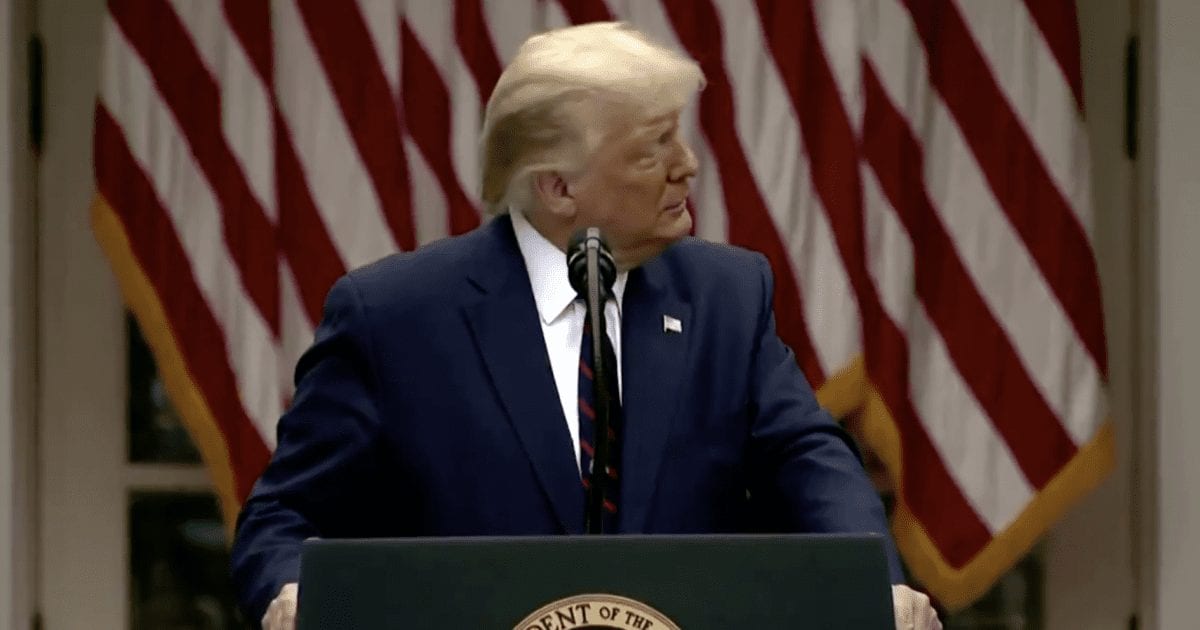Just moments ago, President Trump made it official.
His THIRD nominee to the United States Supreme Court is the eminent Judge Amy Coney Barret.
A woman of impeccable legal credentials, stature and character, by all accounts she should be almost untouchable by criticism.
Although something tells me the Democrats will find a way.
I hear they will attack her on her religious beliefs.
Funny, I always thought discrimination on the basis of religion was illegal in this country?
Did I have that right?
Or is that just for us plebs and not for CONgress?
I guess we shall see.
Or is it just discrimination against non-Christians that is illegal?
Discrimination against Muslims, that's illegal right?
Just not Christians?
Anyway, I digress.
That's a conversation for another day.
Today we celebrate the nomination.
Watch our President make the announcement here:
Longer version:
CBS News is already on the attack, "breaking down" her legal history:
Four years ago on the campaign trail, then-candidate Donald Trump pledged that if he were elected, only "pro-life" justices would get his nomination for a seat on the Supreme Court. As president, it's a promise he's delivered on twice already, and on Saturday, did so once more.
Amy Coney Barrett, Mr. Trump's Supreme Court nomination, meets the president's unprecedented anti-abortion rights litmus test. The federal judge has referred to abortion as "always immoral" and offers something a former top candidate, Barbara Lagoa, doesn't: A clear anti-abortion rights judicial record. During her three years on the 7th Circuit Court of Appeals, she has already ruled on two abortion-related cases, both times favoring restrictions on access to abortion.
"She is the perfect combination of brilliant jurist and a woman who brings the argument to the court that is potentially the contrary to the views of the sitting women justices," said Marjorie Dannenfelser, president of the Susan B. Anthony List, an anti-abortion rights political group, in an emailed statement to CBS News.
Many believe that overturning Roe v. Wade — the landmark 1973 Supreme Court decision that legalized abortion nationwide — is no longer a hypothetical. The vacancy on the court follows the death of Justice Ruth Bader Ginsburg, who was not only liberal but an unequivocal supporter of abortion rights. Though Mr. Trump's two Supreme Court nominations — Justices Neil Gorsuch and Brett Kavanaugh — have been against abortion rights, both replaced conservative justices, effectively leaving the balance of the court nearly untouched.
Earlier this summer, the Supreme Court narrowly struck down an abortion restriction from Louisiana that could have left the state without any abortion providers and leaving 15 more states with abortion access "profoundly" impacted.
Though Chief Justice Roberts joined the liberal bloc in that decision, his separate opinion has been used by federal appeals courts reason to uphold other abortion restrictions. Today, 17 cases related to abortion are one step away from the Supreme Court and three, including a 15-week abortion ban from Mississippi, could be taken up as early as its next session. Dozens more, including the handful of last year's six-week abortion bans, are making their way through the judicial system.
Trump's 200th judge called for "complete and immediate reversal" of Roe v. Wade
Unlike other frontrunners, Barrett offered a judicial record of being against abortion access. Since her appointment to the 7th Circuit Court of Appeals in 2017, Barrett has reviewed two abortion cases, each dealing with restrictions on the procedure.
In Box v. Planned Parenthood of Indiana and Kentucky Inc., Barrett joined dissenters arguing in favor of an Indiana law that would have required doctors to notify the parents of a minor seeking an abortion. Unlike parental notification laws in other states, Indiana's didn't include a judicial bypass provision, an exception to the law for minors able to prove to a judge they have the maturity to make the decision of their own and that notifying their parents would not be in their best interest.
Barrett also joined dissenters in another abortion case from Indiana, Commissioner of the Indiana State Department of Health v. Planned Parenthood of Indiana and Kentucky Inc. Barrett favored a rehearing of two state laws: one that regulated the fetal remains from abortion procedures and another that would have banned abortions for reasons related to sex, race or disability, including life-threatening conditions.




Join the conversation!
Please share your thoughts about this article below. We value your opinions, and would love to see you add to the discussion!